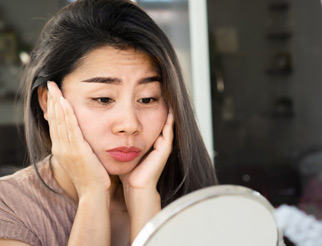Chronic Rhinitis
Chronic rhinitis is a condition in which the inner lining of the nose is inflamed for more than four consecutive weeks.
Causes of Chronic Rhinitis
The condition may be caused by allergies, pregnancy, smoking, medications, inhaling irritants in the air, or other medical conditions such as asthma or chronic sinusitis. Common allergens that may cause chronic rhinitis may include mold, pollen, ragweed, dust mites, pet dander and cockroach residue.
Chronic rhinitis may be classified as allergic rhinitis or non-allergic rhinitis. Allergic rhinitis is caused by the body’s immune system overreacting to allergens such as dust, pollen or pet dander. Non-allergic rhinitis doesn’t involve the body’s immune system and is usually triggered by strong odors, tobacco smoke, air pollution or other unknown causes. About one-fourth of all rhinitis cases are chronic non-allergic rhinitis.
Symptoms of allergic rhinitis include:
Symptoms of non-allergic rhinitis:

Non-allergic rhinitis may be triggered by:
- Irritants or air pollution in the environment, such as detergents, perfumes, smog, strong odors, tobacco smoke
- Fluctuations in the weather, such as cold or dry air
- Upper respiratory infections, like a cold or the flu (however, these infections typically result in acute rhinitis)
- Hot or spicy foods or drinks (also known as gustatory rhinitis)
- Medications, such as aspirin, ibuprofen, antidepressants, beta-blockers, oral contraceptives
- Overuse of nasal decongestant sprays (rhinitis medicamentosa)
- Hormonal changes associated with pregnancy, menstruation, or thyroid conditions
- Stress
- Extensive sinus surgery
- Structural problems that affect the nasal passages, such as a deviated septum, enlarged turbinates, and enlarged adenoids
- Other medical conditions, including asthma, gastrointestinal reflux (GERD), or chronic sinusitis
Treatment Options
Chronic rhinitis may be treated with:
If an individual’s chronic rhinitis is caused by a structural problem, such as a deviated septum or persistent nasal polyps, then they may require surgery.
Individuals with chronic rhinitis can minimize their exposure to an allergen or trigger by:
Individuals who have not experienced relief after using OTC decongestants or antihistamines should schedule an appointment with their primary physician. Individuals who develop a fever or have severe pain in the face may have a serious condition that requires urgent treatment. During the appointment, patients should discuss their symptoms, how long they’ve experienced the symptoms and which treatments they have tried.









